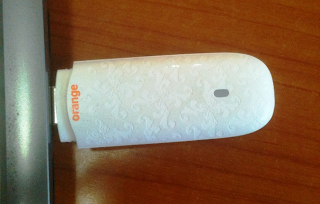I know I haven’t updated in weeks. This post was written a
while back but not completed and with the recent uproar over the ban on Skype
and its bretheren in Ethiopia, it seems an appropriate topic to pontificate on.
When I was web
surfing in Delhi for details on internet quality in Ethiopia ( I fully
appreciate the irony ) I came across a lot of scary blog entries with facts
like Ethiopia has the third worst internet in the world and a number of common
social networking sites are banned etc. In fact since this blog is hosted by
Blogspot, I actually wrote to their customer support to check whether I would
still have access from Addis. They never replied but I have my answer now. I am
unsure of the legal issues or the level of government sanctions still
prevailing, so I can only write on the current internet situation as perceived
by a non-tech savvy foreigner. The first thing to be noted is that there are no
private players in the telecom or internet sectors and all services are
provided by the government agency, Ethio-telecom or etc.
First – Internet access.
There are two ways to activate personal internet service. The
first is by purchasing a plug in modem. EDVO wireless internet was introduced
end of 2009 and offers a speed up to 3.1 MBs and you pay per bite. It requires
a modem from a computer/phone store or the Ethio-Telecom office and costs
around 2000 Birr(112 $ or 6500 Rs). The ‘limited data plan’ EVDO service
(400-700Kb/s) provides three options: a 1 GB internet access for Birr 300
monthly payment, a 2 GB internet access for Birr 500 monthly payment, and a 4
GB internet access for Birr 700 monthly payment. In the recent past, Ethio
Telecom provided unlimited EVDO that apparently was often used in Internet
cafés but this is no longer available.
 |
| The EVDO modem |
We use the EVDO modem with a 2 GB limit. Practically we need
to recharge with 500 Birr at the beginning of the month which suffices for all
normal internet surfing. We obviously keep downloads to the minimum but usually
set a download on the last day of the month to use up all the credit. Needless
to say, any money left at the end of the month does not carry over to the next
and a fresh recharge of 300/500/700 Birr is necessary.
The Ethio-Telecom website is advertising that ADSL
connections are now available with a 6 GB limit and up to 2 Mbps speeds. The
pre-requisite is an available landline. I think they have just started offering
this service and I don’t know of anyone availing this service at the moment.
The second way to access the net is on your smartphone or
notepad with a 3G Sim card. Though normal mobile Sim cards are dime a dozen and regularly thrust in your face by hawkers
on the street, 3G Sim cards are difficult to obtain. I first tried one out
loaned by a friend, realized it worked well and then bugged my office until
they obtained one for me. To the best of my knowledge,3G Sim cards are
available only from the Ethio-telecom office at the Piassa. Normal Sim cards
cost around 25 Birr (80 Rs/1.5$) while the 3G Sim cards cost around 200 Birr (650
Rs/ 11$)
The internet connectivity is good on most smartphones, I am
using an iPhone while my husband has a Samsung Ace. I also have various news
and entertainment apps ( Fashion Police, anyone?) to surf the web other than
Google, all of which are fast enough to be functional. I think it goes without
saying that we don’t have too many patients and I have far too much time on my
hands.
I have a prepaid connection so I have to recharge by buying
a 20/50/100 Birr card and entering the relevant code. I don’t think the 3G Sims
are used very commonly because it is working out to be really cheap.
Update – In case you have no interest in things Ethiopia,
you may have not heard this piece of stunning news. http://www.bbc.co.uk/news/technology-18461292.
I had downloaded some now unmentionable apps which let me call any phone number
in India for a small fee. A payment of 13€ (20$/1000Rs) enabled unlimited
calls to any mobile or landline in India. I was able to send a continuous
stream of photos and videos of Vihaan to appease the grandparents. I could even
send clinical photos to colleagues for a quick consultation.
 |
| Hourly updates on the Vihaan channel |
Now that these
easy breezy means of communication are a thing of the past, a feeling of glum
depression is settling in. Freedom is a right appreciated only when denied.
Homesickness may be a palpable reality now that I can no longer call my mother
at the drop of a hat to confirm a Sambhar recipe or a senior to ask the best
way to sterilize iris hooks. Suddenly the scorching heat of Delhi doesn’t seem
so bad and Ethiopia seems much more remote from home than a six hour flight.